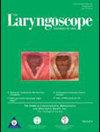The Ingestion Question: Public Knowledge of Safe Food Introduction in Children
Abstract
Objectives
National guidelines advise delaying initiation of solid foods until after 4–6 months of age and avoiding “high-risk” foods under the age of 4 years. However, foreign body aspiration of food remains a common preventable pediatric emergency. Our primary aim was to investigate public knowledge regarding the safe age of introduction of different foods to children and determine if demographic factors affect this knowledge.
Methods
An online survey was designed following a literature review and consultation with an expert panel. This was distributed via social media platforms. A review of our institutional data of bronchoscopy/foreign body retrievals was performed to identify trends.
Results
There were 1000 survey responses: 79.4% of respondents cared for children and 21.5% were medical professionals; 37.7% of respondents (n = 385) would offer high-risk foods to children <2 years of age and 56.9% (n = 582) to children <3 years. At our institution nuts (65.7%) were the most common food-related foreign body retrieved from a total of 265 over 21 years. Notably, 80% of respondents (n = 800) would offer whole nuts to children <4 years. Respondents with medical training were more likely to hold off on introducing nuts to children until a later age.
Conclusion
Although the public has an overall appreciation of food safety, a significant proportion would feel comfortable offering high-risk foods to children under 2 and 3 years. There is a poor understanding of the danger of nuts and the appropriate age of introduction. Further research into effective public education strategies on safe food introduction in children are warranted.
Level of Evidence
5 Laryngoscope, 135:445–451, 2025


 求助内容:
求助内容: 应助结果提醒方式:
应助结果提醒方式:


